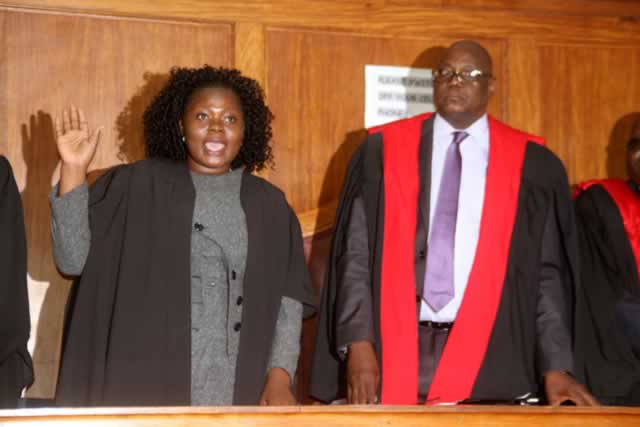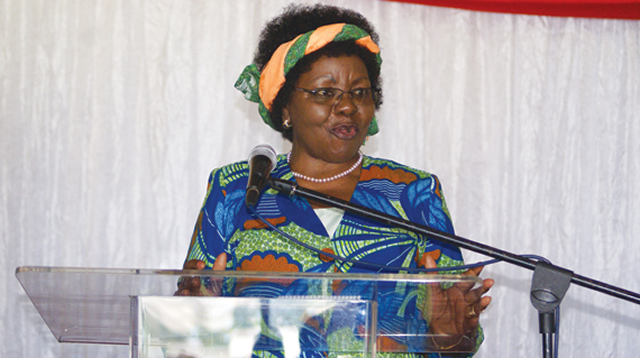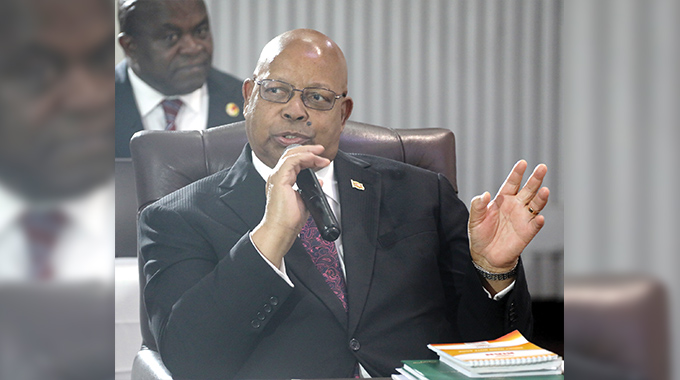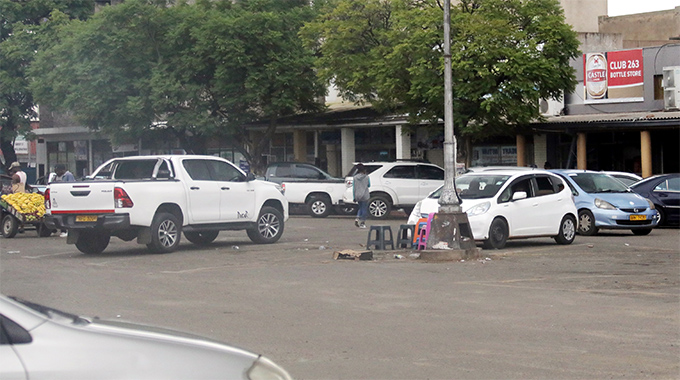JSC introduces case tracking system


Rangarirai Priviledge Gakanje takes the oath during the swearing in ceremony while Chief Magistrate Mishrod Guvamombe looks on at the Bulawayo Magistrates court yesterday
Auxilia Katongomara Chronicle Reporter
THE Judicial Service Commission (JSC) has introduced a case tracking system to monitor the movement of court records in a development that should enhance the country’s justice delivery system.
Chief magistrate Mishrod Guvamombe said the days of records disappearing are long gone due to the new system.
The chief magistrate said this at a swearing in ceremony of two provincial magistrates, Rangarirai Priviledge Gakanje and Adelaide Mbeure at the Bulawayo Tredgold Magistrates Court yesterday.
“Over the years, our justice system has developed invaluable forms of checks and balances aimed at achieving quality work in the courts. Recently, we commenced a case tracking system. This system will make it easier for us to track all records. It’s a fool- proof system which can’t be tampered with,” said Guvamombe.
He said the movement of each and every record would be monitored.
The tracking system would be welcomed by many as there have been reports of missing documents at the courts.
In one prominent case, the record of proceedings in the matter of a murder suspect Jonathan Mutsinze disappeared at the close of the defence case in 2003. The matter was before Justice Charles Hungwe who was later cleared of any wrongdoing in the disappearance of the court documents by the Constitutional Court in September last year.
Mutsinze was later sentenced to life imprisonment after having spent 10 years in remand prison.
Guvamombe urged the two new magistrates to be dedicated in their discharge of duties.
“The job of a magistrate is a calling for those who want to dedicate their lives to doing justice between man and woman. It’s not a profession for those who want to seek fortune. For the two magistrates joining the bench today, your priorities must dovetail into the vision of the Judicial Service Commission which is to promote and facilitate the delivery of world class justice,” Guvamombe said.
He warned the magistrates against engaging in corrupt and reckless behaviour which could taint their integrity.
“While today you’ll publicly affirm that you will deal fairly and honestly without fear or favour to all irrespective of colour, status, class, creed or gender . . . any form of misbehaviour, corrupt tendencies and partiality in presiding over cases will compromise integrity,” said Guvamombe.
“In the exercise of your duties, be wary of unscrupulous members of the public who may attempt to taint your integrity through corruption. A good judicial officer’s duty is to resist such attempts.”
Guvamombe advised the two magistrates that their life must be beyond reproach.
“In your life as magistrates, you have to forgo certain pleasures of life which may cast aspersions on judicial integrity. Do’nt allow your personal life to interfere with your work. Your personal life must remain private at all material times.
“However, when your personal life interferes with your work, we’ll not remain aloof but we’ll intervene,” said Guvamombe.











Comments